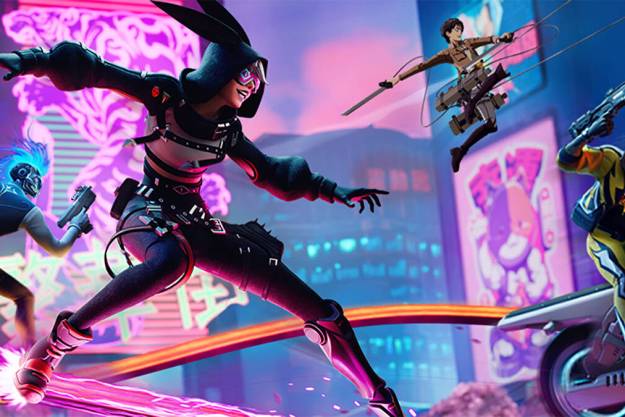The Sony PlayStation Vita reached its end-of-life earlier this year when Sony terminated production. Now Sony has poured salt in the wound, with confirmation it’s not working on a new handheld console.
While it can be sad to see a cult favorite go, it’s no big loss for gaming. And it’s not a problem that Sony won’t build a new portable PlayStation. A lot has changed since 2012, when the PS Vita launched. There’s no good reason for Sony to make a new portable console, and no good reason for gamers to buy one.
Little to be gained by Sony
There’s one big reason to think Sony should make a portable console. The Nintendo Switch. Its success has lead gamers to wonder if portable consoles from Sony and Microsoft could do just as well.
But where the PS Vita made sense as a product when launched in 2012, there’s less room for it in 2019 and beyond. It’s not just because the PS Vita struggled to attract customers in the same way the PlayStation 4 and Nintendo Switch, though that struggle does help justify Sony’s decision to abandon portable consoles. The real problems are the alternatives. There’s a lot of them.
Sony has proven it can handle game streaming. Amid the hubbub about Microsoft’s Project xCloud and Google Stadia, it’s all easy to forget that Sony has been offering its PlayStation Now game streaming service for over 5 years.

The PlayStation Now service lets players on PS4 and PC play games that are streamed over an internet connection. In the past, Sony has supported streaming to PS3, PlayStation Vita, and even some smart TVs and Blu-ray players.
Sony also offered a remote play system on the PS Vita, letting the portable console stream the video feed from games on a PS4. That feature has since found its way onto PC, Mac, iOS, and Android devices.
In 2020, Sony continues to use streaming as a means to make PlayStation games playable on different devices. That lets the hardware team focus on the PlayStation 5. Why build a separate, portable console when Sony could just offer PS Now for mobile devices?
Nothing to be gained by gamers
It doesn’t make business sense for Sony to build a portable console. It also doesn’t make sense for gamers to buy one.
Except for the holdouts still rocking flip phones or sliders, most of us now have a capable device in our pockets. Our smartphones have sharp displays, with many exceeding six inches in size. In comparison, the PS Vita display was just five inches and had a resolution of only 960 x 540. Even some of the cheapest smartphones, like Motorola’s Moto G family, offer larger, higher resolution displays.
That hardware we keep in our pockets gets more powerful with each year. It would be more of a hindrance than a benefit for us to carry around a second device just for playing PlayStation games, as the hardware powering that experience would just fall further and further behind smartphone technology.
Yes, the Nintendo Switch has been a success in spite of smartphones, so Sony could just make their own take on a Nintendo Switch. But part of Nintendo’s magic is a game library that can be handled on less powerful hardware. Sony’s top exclusives (think God of War, Spider-Man, Horizon Zero Dawn, not to mention whatever comes to PS5) aren’t a good fit for a mobile device.

That would force Sony to in some way split its library. If a new portable Sony console didn’t play all the same games the
That’s where game streaming can simplify matters. If you can stream games to your iPhone,
In the case of some games, a 4G mobile connection would be enough to have a playable, enjoyable experience. Slower-paced games, like turn-based RPGS, wouldn’t need the same connection speeds or low latency as other titles. And for the fast-paced games,
Though there are only a handful of phones offering
What 2020 Should Look Like
Streaming isn’t likely to replace dedicated gaming hardware any time soon. The crisp imagery, fast frame rates, and near-instant responsiveness of local hardware will stay ahead of the compressed video feed, limited frame rates, and input latency of game streaming for a least a little longer.
But, that doesn’t mean game streaming won’t be a potent companion to dedicated hardware.
Gamers can enjoy the high-quality gaming experience they’re used to at home on the PlayStation 5. And, when they’re out of the house, they can use a

As
Would a portable console be more reliable? Sure. Would it be awesome to hold? Yes, absolutely. Novelty alone isn’t enough to carry a console, however. The Switch already exists. Any portable console from Sony would not only have to co-exist with the PlayStation 5, but also fight the Switch for portable supremacy.
Sony wouldn’t win that fight. Gamers would lose, too. Sony’s past portable consoles languished because the company couldn’t offer them proper support while focusing on the PlayStation. There’s no reason to think that would change in the future.
Streaming isn’t the best of both worlds, but it’s a good bit of each. Sony is right. It’s time to bury the dream of a portable PlayStation.
Editors' Recommendations
- PlayStation VR2 production reportedly paused by Sony
- Sony’s new PlayStation earbuds are a perfect match — for my Nintendo Switch
- PlayStation Showcase teased Sony’s live service future, but I’m not impressed yet
- Heroes of Middle-Earth isn’t afraid to play with Lord of the Rings canon
- 3 big things I need to see from the next PlayStation Showcase




